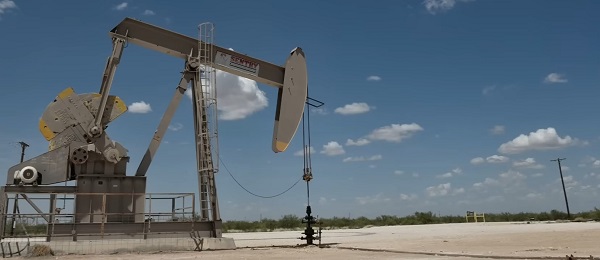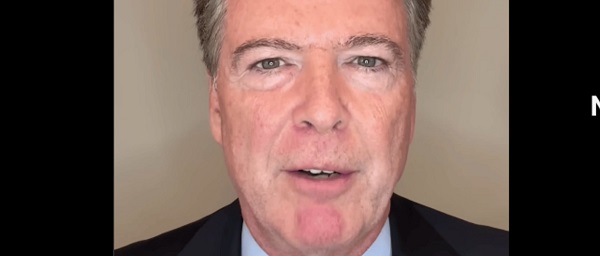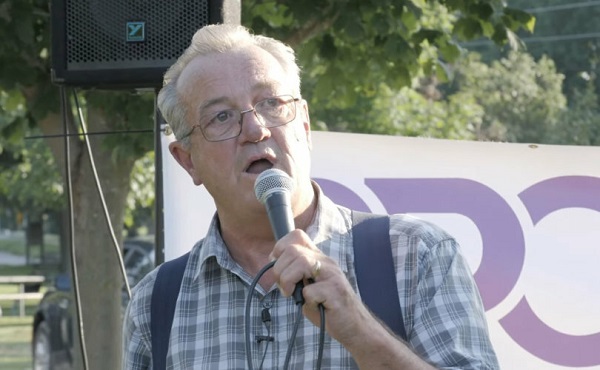Energy
Is Carney ‘All Hat And No Cattle’?

From the National Citizens Coalition
By National Citizens Coalition President Peter Coleman
Mark Carney promised to lead Canada with bold vision and economic strength. But his latest stall tactics on removing red tape for Canadian oil and gas, his floundering in tariff negotiations despite lofty “elbows up” promises, and his refusal to address shocking interference allegations tied to his public safety minister so far show that he’s all hat and no cattle.
Today, Prime Minister Mark Carney held consultations and conversations with Indigenous groups on Bill C-5, which claims to fast-track “nation-building” energy projects. Yet he announced no major approvals on the horizon, and impressed no urgency or authority upon those in attendance who would seek to claim veto over vital projects.
Canada doesn’t need more endless talk or one bill to pick more losers than winners. We need action to remove anti-resource laws and regulatory roadblocks that choke our energy sector. Projects like pipelines and LNG facilities are critical for jobs, economic growth, and energy security, but they’re stalled by bureaucratic overreach and outdated policies. Hard-working Canadians deserve affordable energy. Our economy needs rescuing from tariff threat and a decade of Liberal sabotage. And Indigenous communities deserve real economic partnerships, not more delays and cowardly half-measures that often only placate anti-resource interests and insiders, not the real needs of the community.
Streamlined approvals with clear economic benefits will unlock prosperity for all Canadians. Carney’s stall tactics only hold back progress. It’s time to cut the red tape and get out of the way so that real Canadian leaders, and our great Canadian workers, can rebuild Canada after all that’s been broken.
Carney campaigned as the economic genius who could handle U.S. President Donald Trump’s tariff threats. Yet, with Trump’s August 1 deadline for a 35% tariff on Canadian goods approaching, Carney’s negotiations are going nowhere. His vague promises do nothing to protect Canadian jobs, industries, or families facing higher costs. Canadians deserve a leader who delivers results, not one who breaks campaign promises with empty rhetoric.
Meanwhile, he’s been shielding corruption and dodging accountability. Carney, now revealed to have 16 pages of conflicts that were kept from voters during the election, continues to protect Public Safety Minister Gary Anandasangaree, who faces serious allegations of lobbying for those with listed terrorist ties. Instead of demanding transparency, Carney is shielding his minister from scrutiny, doubling down on the Liberal tradition of dodging accountability. Canadians deserve a government that upholds integrity, not one that buries troubling connections to protect political allies. Is Carney just like Justin, who broke immigration and invited rampant foreign interference into government? Because this response is right out of his predecessor’s playbook.
Mark Carney’s leadership has been all talk and no action. Canada needs a government that unleashes our energy potential, lives up to its lofty campaign promises, and roots out corruption; not another Justin Trudeau.
We’re not falling for it. And neither are you. Demand action. Demand results.
–Peter Coleman, President, National Citizens Coalition
Daily Caller
Shale Execs Complain Of ‘Broken’ Prospects In New Survey


From the Daily Caller News Foundation
In his remarks at this week’s U.N. Climate Week conference, President Donald Trump reminded the U.N. general assembly that “we have an expression, ‘drill, baby, drill.’ You know, that’s what we’re doing.”
But according to almost 80% of the dozens of shale oil executives who responded to the third quarter survey of oil and gas companies by the Dallas branch of the Federal Reserve, that’s all about to come to an end thanks in large part to the President’s focus on cutting oil prices as a means of controlling inflation.
“The uncertainty from the administration’s policies has put a damper on all investment in the oilpatch,” one executive said. Another warns that “drilling is going to disappear.”
Dear Readers:
As a nonprofit, we are dependent on the generosity of our readers.
Please consider making a small donation of any amount here.
Thank you!
One upstream company executive was especially angry at the administration, writing that the business “has been gutted by political hostility and economic ignorance. The previous administration vilified the industry, buried it in regulation and cheered the flight of capital under the environmental, social and governance banner…Now the current administration is finishing the job.”
The confidential format of the Dallas Fed’s quarterly surveys encourages the executives to speak bluntly in their responses, and the airing of such grievances is often the result. Most would no doubt temper their language in a meeting with the President or his senior officials, and other respondents did just that, noting that their industry and companies have been buffeted this year by an array of factors, both domestically and internationally.
“There are a variety of issues affecting our business,” one respondent points out. “First, excess in the global oil market is restraining oil prices near term. Second, there is continued uncertainty from OPEC+ unwinding production cuts. Third, trade and tariff changes and the resulting geopolitical tensions.”
He or she isn’t wrong. While shale drillers and producers have no doubt been frustrated by the constantly shifting tariff situation as the White House works out trade deals with dozens of countries, there are other major market factors well beyond any U.S. president’s control. The uncertainty around tariffs has without question increased industry costs, especially as they relate to tubular goods and other steel and aluminum products that are integral to their operations. But at the same time, there can be little doubt that the monthly machinations of the OPEC+ cartel have created a much larger impact on driving down the price of crude oil and thus, driving down company profits.
As for the geopolitical tensions the responder mentions above, Joe Biden’s four years in office were chock-full of such issues, many of which were left behind for Mr. Trump to deal with and resolve. The simple truth is that there has never been a time during its 166-year history that the U.S. oil and gas industry didn’t have to deal with such complications.
The oil business is an infamously cyclical one, as anyone who has been in it for more than a year understands. I spent more than 40 years in the industry and would need to use fingers on more than one hand to total up the number of boom-and-bust cycles that took place during that span.
The fact is that drilling levels in the United States have been on a steady decline since late 2018 in response to prevailing market factors far more than to the policies of the Biden or Trump administrations. As I pointed out shortly after last November’s election, the maturity of every major shale play meant that there would be no revival of “drill, baby, drill” in a second Trump presidency regardless of the administration’s policy direction. It just was never going to be in the cards.
The grievances and frustrations aired by these executives are entirely understandable: It’s a tough business that is impacted for better or worse by public policies. But pointing the finger of blame at Trump is a simplistic reaction to a highly complex set of circumstances.
David Blackmon is an energy writer and consultant based in Texas. He spent 40 years in the oil and gas business, where he specialized in public policy and communications.
Energy
Here’s a list of ways the Carney government can unshackle Canada’s energy sector

From the Fraser Institute
The Carney government recently unveiled its first list of projects under the recently enacted Bill C-5, officially dubbed the “Building Canada Act.” In practical terms, under Bill C-5, the prime minister will determine what projects are—or are not—in the “national interest.”
Not the expressed interest of the public, which may want to buy things delivered via such projects. Not the expressed interest of investors who want to pump money and productive activity into the Canadian economy. No, people such as Steven Guilbeault—former minister of Environment and Climate Change, current Carney cabinet member, and perhaps the person most responsible for creating Canada’s major-project building problem in the first place—will help Prime Minister Carney determine what “major projects” are in the “national interest.”
Bill C-5 allows cabinet to override existing laws, regulations and guidelines to facilitate investment and the building of projects such as pipelines, mines and power transmission lines. Or, as we have recently seen, choose not to facilitate them.
The Carney government’s first project list does not include a single oil or gas pipeline project. The government says this is because nobody in the private sector has proposed one, which is likely true—as Alberta Premier Danielle Smith has observed, the current regulatory environment deters investment. Indeed, only a fool would spend the money needed to even write up a formal project proposal relating to oil and gas production or transport in Canada right now. Canadian energy CEOs sent Carney an open letter saying much the same thing. To spur investment, Canada needs major regulatory reform not more fiat governance. The CEOs want government to simplify regulations, shorten timelines for project approval, commit to growing production, create fiscal frameworks to attract investment and find ways to gain aboriginal support for oil and gas projects. All nice words, but also, all too general.
So, in the interests of helping the government figure out what it might do with more specificity, here’s a list of “Bills/Acts that Could be Repealed or Neutered in the National Interest:”
Repeal/neuter the Tanker Ban Bill, (Bill C-48), which discourages investment in oil and gas export capacity in Canada. Repeal/neuter the cap on Canadian oil-and-gas-related greenhouse gas emissions, which deters investment in Alberta oil and gas. Repeal/neuter the regulations for methane emissions in the oil and gas sector, which will almost inevitably raise costs and curtail production. Repeal/neuter the EV mandate, another thinly-veiled initiative that would dissuade potential investors from producing fuels for use in internal combustion vehicles. (And no, the recent trivial “review” initiative by the prime minister doesn’t count as meaningful repeal.) Finally, Carney could repeal/neuter the Orwellian-named Clean Electricity Regulations, which investment in natural gas production.
Canada, as is now recognized on across the political spectrum, has ambitions to become an “energy superpower.” But that race cannot commence until the runners lose the regulatory shackles that have been piled upon them over the last decade. The Carney government should focus more on specific unshackling and less on hollow cheerleading. In other words, less talk, more action.
-

 armed forces19 hours ago
armed forces19 hours agoSecretive Lockheed Martin Skunk Works reveals latest high-tech military drone
-

 International18 hours ago
International18 hours agoEverything has changed. Again.
-

 Bruce Dowbiggin2 days ago
Bruce Dowbiggin2 days agoWhat We Had Here Is A Failure To Communicate
-

 Business1 day ago
Business1 day agoGun Buyback Program creating criminals out of law abiding citizens and directing police away from actual crime
-

 Business2 days ago
Business2 days agoCritics Accuse YouTube of Dragging Out Return Process for Banned Channels
-

 Daily Caller2 days ago
Daily Caller2 days ago‘Let’s Have A Trial’: Comey Responds To Indictment
-

 Censorship Industrial Complex2 days ago
Censorship Industrial Complex2 days agoConservative MP Leslyn Lewis warns Liberals’ ‘hate’ bill will allow for prosecution of free speech
-

 Opinion1 day ago
Opinion1 day agoThe City of Red Deer’s financial mess – KPMG report outlines failure of council to control spending





